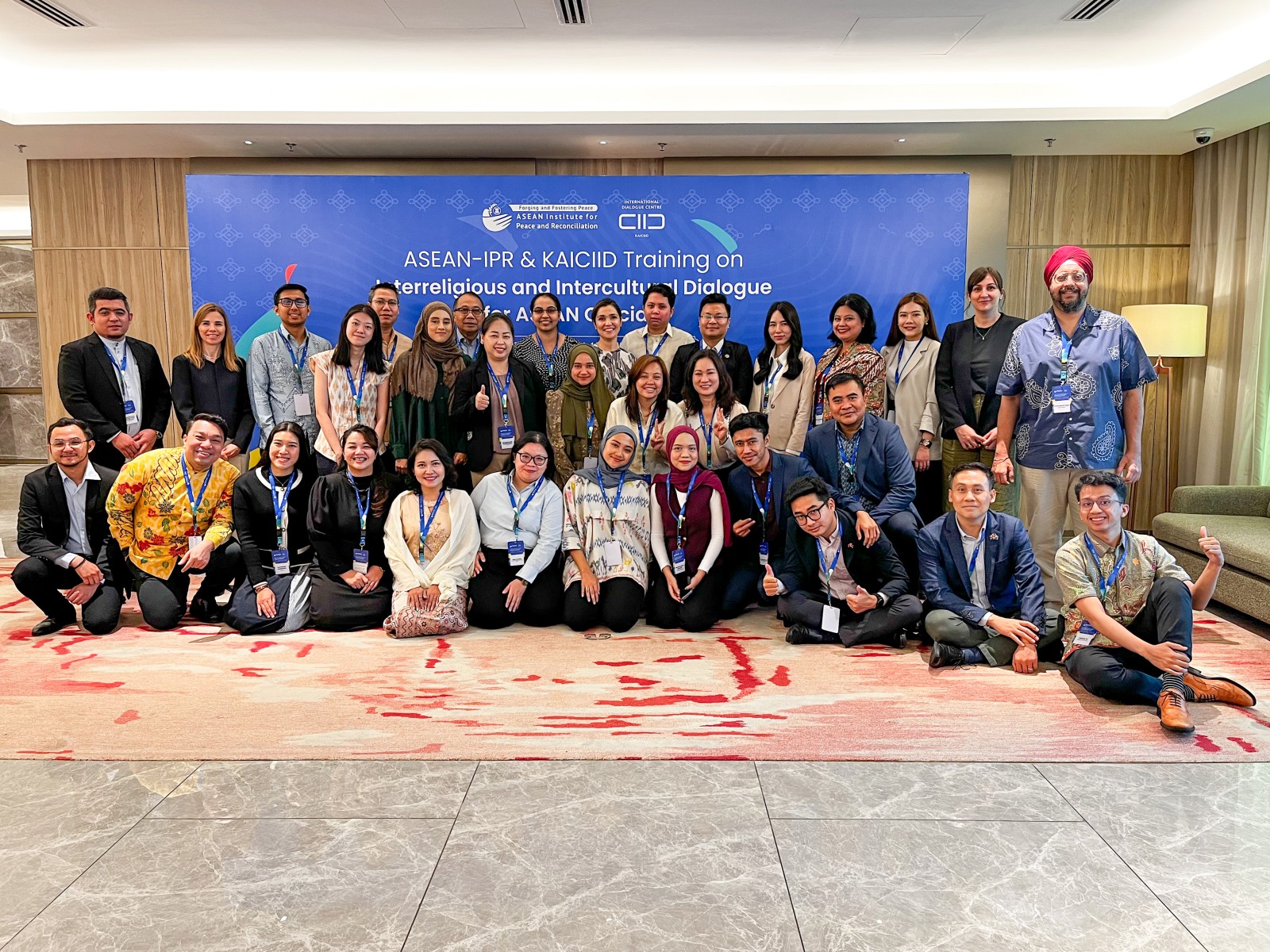JOINT ASEAN-IPR & KAICIID Release: ASEAN-IPR & KAICIID Training on Interreligious And Intercultural Dialogue For ASEAN Officials
11-15 November 2024
Penang, Malaysia
“We are truly proud to be home to some of the most diverse countries in the world – whether culture, race, language, faith and/or religious beliefs. However, this could be a double-edged sword – as plurality may pose challenges of inter-communal tensions and/or conflict, potentially posting a significant threat to our regional peace and prosperity… Thus, it is truly pertinent for all of us to foster interreligious and intercultural dialogue, and utilise to our advantage to bridge gaps, respect diversity and plurality, build trust for conflict prevention, conflict resolution and peaceful coexistence.”
Such were remarked by the Executive Director of ASEAN Institute for Peace & Reconciliation (ASEAN-IPR), I Gusti Agung Wesaka Puja, as he officiated the ASEAN-IPR & KAICIID Training on Interreligious and Intercultural Dialogue for ASEAN Officials, which was convened on 11-15 November 2024 in Penang, Malaysia. The Training was ASEAN-IPR’s collaborative effort with The International Dialogue Centre – KAICIID. It was the 2nd occasion of the Training, following its Module Development and Pilot Training in Bangkok, Thailand, back in November 2023.
Speaking on behalf of KAICIID, Ms. Vera Ferreira, Head of Regional Programmes, underlined in her Welcome Remarks that “dialogue has the power to transform how we see the world, how we engage with each other and how we contribute to build more peaceful and cohesive societies. It is a tool, a process, an approach and a way of life.”
This year’s Training brought 23 participants coming from ASEAN Member States and ASEAN bodies/entities, utilising the Training Module already developed by a team of Experts/Trainers from the region, as well as KAICIID’s Experts/Trainers, building from KAICIID’s existing source materials on interreligious and intercultural dialogue, specifically tailored to the characteristics, needs and/or relevance of the region.
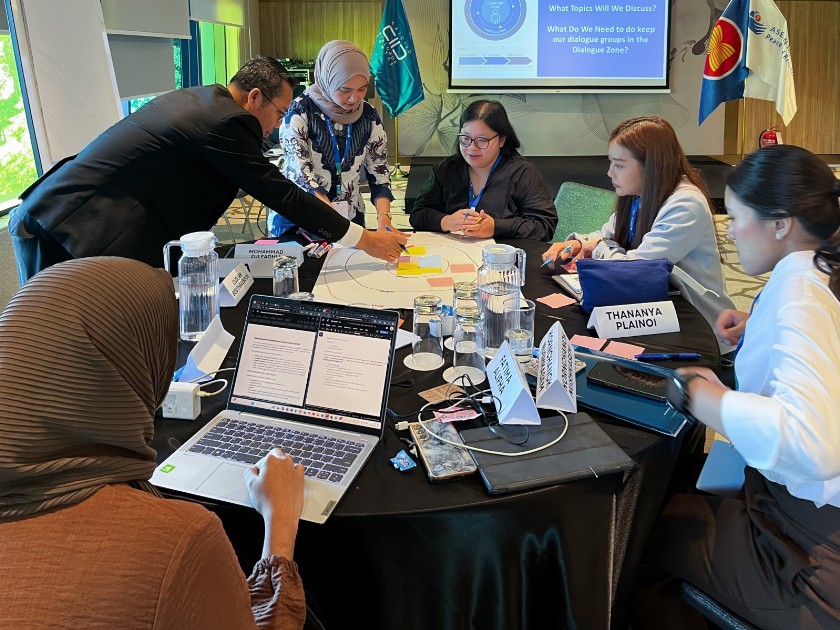
Ms. Nurul Amirah, participant from the ASEAN Inter-Parliamentary Assembly (AIPA) Secretariat, viewed that the “…training delivered a perfect blend of knowledge and hands-on practice. It is well-structured, engaging and offered great networking opportunities. I feel more confident and equipped with tools to apply in my work.”
Throughout the five-day Training, participants were equipped with introduction to dialogue – including essentials and fundamental skills; conflict analysis, conflict transformation and peacebuilding framework; practical dialogue and outcome assessment (including non-violent communication, dialogue design process). The Training was conducted through interactive sessions such as role-play, simulation exercises, mentoring sessions, as well as site visits.
“The Training was both comprehensive and interactive. Beyond delivering valuable material, it brought learning to life through role-playing various dialogue strategies,” said Ms. Fidia, participant from ASEAN Foundation. She further underlined that the Training is crucial “for enhancing our daily interactions and foster meaningful connections.”
Mr. Ekto Vongphakdy, participant from the Permanent Mission of Lao PDR to ASEAN, highlighted a key takeaway that interreligious and intercultural dialogue “…can be challenging, particularly in helping individuals transition from their comfort zones to a dialogue zone, and from an anxiety zone to a stretch zone. The main challenge lies in how we can embody core values – compassion, deep listening, and non-judgement – using non-violent communication to create meaningful and respectful dialogue.”
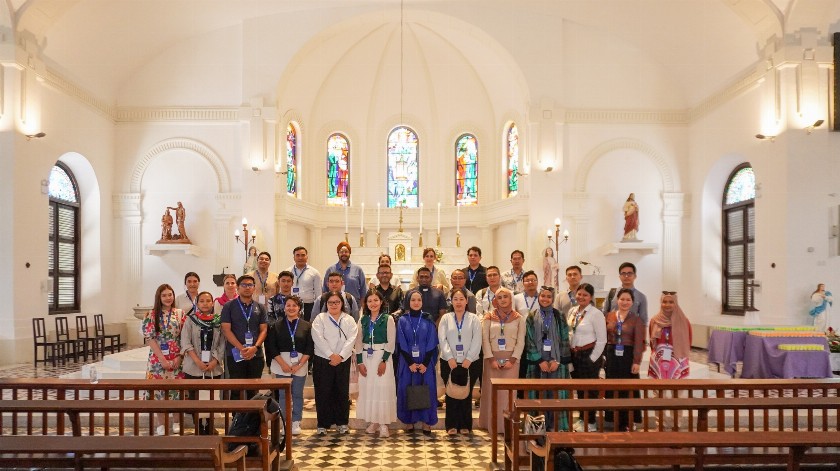
The city of Penang is known to many as cultural melting pot, famous for its architectural and cultural townscape. Thus, Penang very much reflects the essence of interreligious and intercultural dialogue – with participants having the opportunity to visit places of worship such as Kuan Yin Temple, Kapitan Keling Mosque, Church of Assumption, Sri Mahamariamman Temple and Wadda Gurdwara Sahib.
Lyn d’Amor Buquing, a participant from the Ministry of Women, Family and Community Development of Malaysia, highlighted that the Training is “…the tool we need to increase mutual understanding, bridge gaps of difference and work towards a more accepting and peaceful tomorrow.” As a participant from the host country, she viewed that by organising the Training in Penang, participants from ASEAN Member States could view “…how living in real harmony can be achieved if we can be tolerant, have mutual understanding, respect for equality in the practice of each interreligious teachings and cooperation in social, national and state life.”
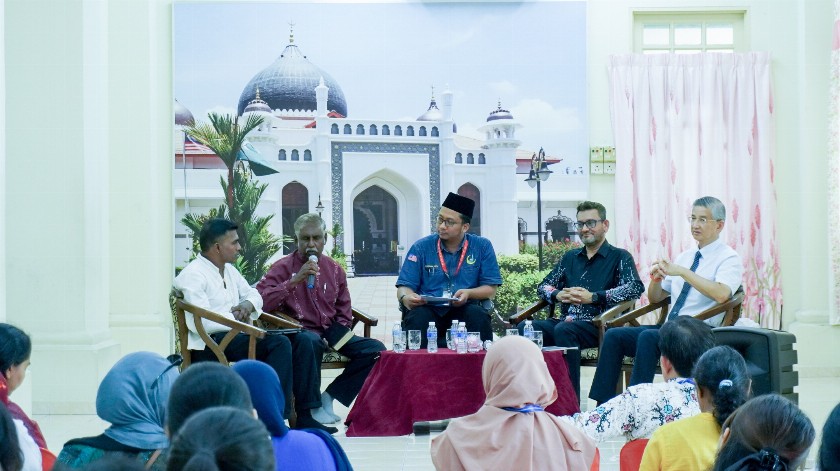
With the Training’s shift of city, the Training’s programme, while staying true to the Module developed the year prior, was tailored further to where the Training is held. This year’s programme was designed by a team of Experts/Trainers, spearheaded by Dr. Charanjit Kaur Darshan Singh (Malaysia). Dr. Charanjit emphasised that the Training “was an engaging and impactful experience that went beyond traditional learning. Through a well-structured blend of lectures, case studies and hands-on activities, the Training provided participants with practical strategies that directly applied to their roles. The interactive setup allowed officials from diverse backgrounds to share their perspectives openly, fostering a rich exchange of ideas and insights. The facilitators actively encouraged open dialogue allowing officials from diverse backgrounds to comfortably share their perspectives, which enriched the learning experience for everyone involved.”
Dr. Charanjit also highlighted that “a key strength of the programme was its focus on real-world experiences… The facilitators were not only knowledgeable but also highly approachable and willing to share their expertise, which led to engaging discussions and a sense of community among participants. This approach fostered a genuine sense of community and openness, essential for such dialogue-focused Training.” Other Trainers in the Training were Ms. Nabiela Ismail (Malaysia), Prof. Pablito Baybado (Philippines), Mr. Malminderjit Singh (Singapore), Ms. Vera Ferreira (KAICIID), Ms. Mitra Modaressi (KAICIID) and Ms. Arijana Aganovic (KAICIID).
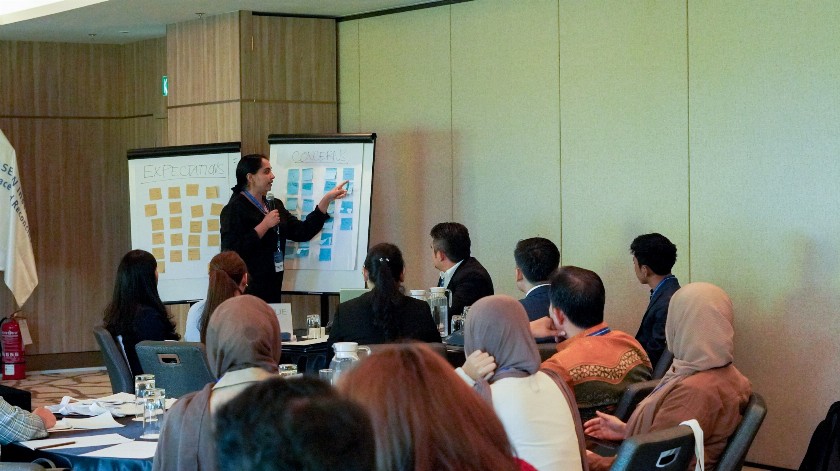
This year’s Training also had the endorsement from the Ministry of Foreign Affairs of Malaysia, as the host country of this occasion of the Training. At the close of the Training, Mrs. Nur Nadiah Hidayat (Director, APSCD, ASEAN-Malaysia National Secretariat, Ministry of Foreign Affairs of Malaysia), remarked “the beauty of Penang, with its cultural richness and diversity, is not simply something to admire from afar but something to be internalized and replicated. The values of respect, mutual understanding, and cooperation are reflected in the daily lives of the people here. These values are at the heart of what we hope to achieve in ASEAN—creating a region where differences are celebrated, where communities thrive in peace, and where collaboration across cultures and religions leads to greater prosperity for all.”
As ASEAN’s incoming Chair for the year 2025, she further underlined that “Malaysia will continue to play an active role in advancing the goals of ASEAN, fostering deeper interreligious and intercultural understanding across the region, and working towards a future where cooperation and respect are the foundation of all our efforts.”
For more information about ASEAN-IPR and KAICIID, please visit our respective websites (www.asean-aipr.org; www.kaiciid.org) and follow our social media platforms.
*******




